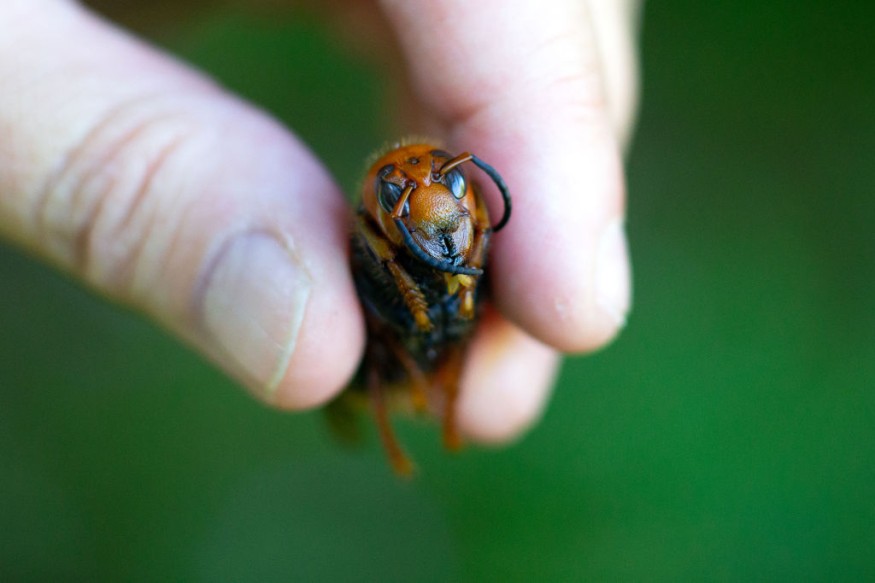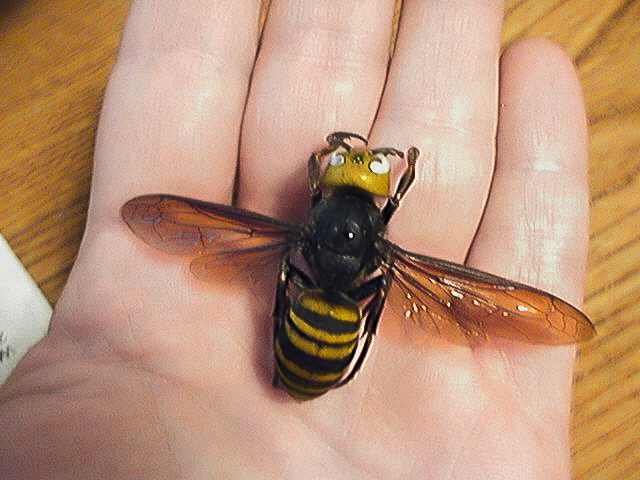There are no longer "murder hornets" in the US. Well, not actually, but Its name has at least vanished. The invasive insect formerly known as the "murder hornet" is now officially called 'Northern Giant Hornets'.

Why change the name?
The murder hornet, sometimes referred to as the Asian gigantic hornet, has a new name according to concerns that "the use of 'Asian' in the name of a nuisance insect might unintentionally promote anti-Asian sentiment," particularly "during a spike in hate crimes and discrimination against individuals of Asian heritage."
In its Common Names of Insects database, the ESA gave the species the name "northern giant hornet."
The ESA claims that while all wasps are endemic to Asia, the term "Asian gigantic hornet" does not specifically describe the biology or behavior of the species.
The proposal to change the species' name was written by Chris Looney, an entomologist with the Washington State Department of Agriculture. He claimed that the Vespa mandarinia scientific name, which was previously used for identification purposes, "is at best a neutral and uninformative adjective, potentially a distraction from more salient characters of the organism, and at worst a racist trope."
Avoiding Asian Hate

ESA President Jessica Ware stated, "I don't want my Asian American or Pacific Islander colleagues, friends, and family to have any negative connotations with invasive or pest species that may be utilized against them wrongly.
ESA revised its standards for appropriate insect common names in 2021 to exclude names that allude to racial or ethnic groups that might incite fear and discourage names that indicate geographic regions, mainly for invasive species.
On Monday, Ware stated that "common names are an essential tool for entomologists to engage with the public about insects and bug science." "Northern giant hornet avoids instilling fear or discrimination and is scientifically correct and simple to understand."
According to Karla Salp, interim communications director for the Washington State Department of Agriculture, the northern giant hornet might be dangerous to honeybees, people's health, and agriculture.
Northern Giant Hornets' Stay in the US
After the northern giant hornet was discovered in Washington State in 2019, attempts have been made to eliminate the species. Three of the four nests were destroyed in the state with the public's assistance, proving the importance of public knowledge.
Washington State is the only US state with documented observations of the northern giant hornet. Still, a 2021 research in the Journal of Insect Science suggests that if the species is not controlled, it may spread to other parts of the Pacific Northwest.
According to the ESA's common name toolbox for the northern giant hornet, "if permitted to settle in locations inside North America, the northern giant hornet might profoundly damage local ecosystems."
The toolbox said that although northern giant hornets typically do not bite people, they will if provoked or threatened. "Their stinger is longer and more poisonous than those of bees and wasps found in North America."
Truly Terrifying Creatures
According to Ware, the term "murder" instills terror in people, and northern giant hornets are not the only insects that harm honeybee colonies. She believes that by changing the name, more people would be able to learn about and comprehend the species.
The northern giant hornet has a difficult life, although it shares some drawbacks with the other 1.5 million insect species that exist, according to Ware. It had been around for millions of years before humans arrived on the scene, and certain aspects of its life cycle and ecosystem are truly intriguing.
Related Article : Scientist Claims That Wasps Aren't Just Pointless Creatures
For more news from the animal kingdom, don't forget to follow Nature World News!
© 2025 NatureWorldNews.com All rights reserved. Do not reproduce without permission.





